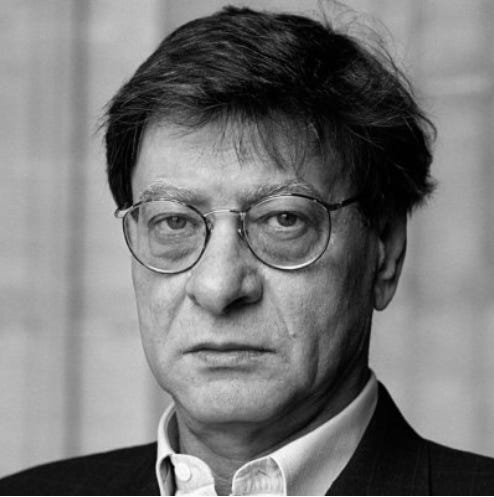Mahmoud Darwish (1964–2008) was one of the most prolific and celebrated Palestinian authors.
He was born in al-Birwa, a village in the Western Galilee that was destroyed by the Israeli army. For a while, Darwish and his family were considered “present-absent”. Later he gained resident status, despite the fact he were born there and the law granted him citizenship.
He was harassed and arrested by the Israeli security forces multiple times because of his poetry and had to live in exile for many years. His work deals with the loss, violence and displacement suffered by his people — some even call him “the voice of the Palestinian Diaspora”.
It’s been less than two years since I started reading his poetry, which ressurfaces in my mind every now and then.
Sadly I can't read Arabic, so I won’t be able to tell you how his writing sounds in the original, but the translations I found so far paint such a vivid image I can’t help but to be mesmerized by his use of language.
Here is To Our Land, translated by Fady Joudah:
To our land,
and it is the one near the word of god,
a ceiling of clouds
To our land,
and it is the one far from the adjectives of nouns,
the map of absence
To our land,
and it is the one tiny as a sesame seed,
a heavenly horizon ... and a hidden chasm
To our land,
and it is the one poor as a grouse’s wings,
holy books ... and an identity wound
To our land,
and it is the one surrounded with torn hills,
the ambush of a new past
To our land, and it is a prize of war,
the freedom to die from longing and burning
and our land, in its bloodied night,
is a jewel that glimmers for the far upon the far
and illuminates what’s outside it ...
As for us, inside,
we suffocate more!




